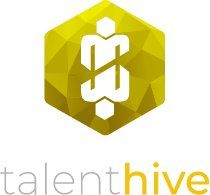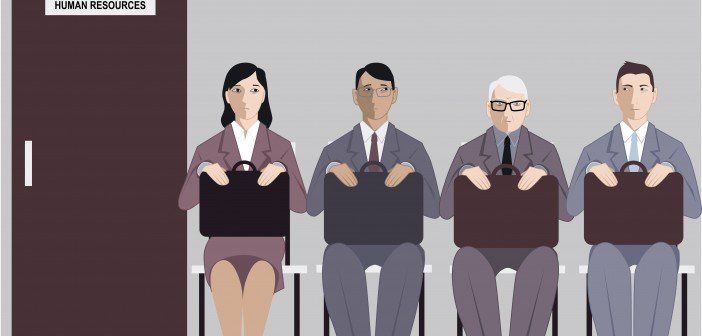AGEISM – A NEW APPROACH FOR AN AGE OLD PROBLEM
Matt Love-Smith • September 20, 2021
Compared with previous generations, our ageing population isn’t as likely to hang up their boots when they hit retirement age. Longer life expectancy combined with a more flexible work culture means older candidates are finding it easier to continue working past retirement and beyond.
Whether it’s continuing in the job they love, learning new skills, or opting for something part-time to keep physically and socially active, there are plenty of ways for older people to get out there and get some action in the jobs market. The question is, are employers as keen to hire older candidates as older candidates are to work? Does ageism exist in the jobs market?
In a word, yes. Just look at the number of tech industry job listings for ‘young, nimble start ups.’ According to the University of Auckland Business Review, discrimination is on the rise. But with over-40s making up around 44% of New Zealand’s population – and expected to increase to 54% by 2021 – it’s time we all understood the opportunities that come with an ageing workforce.
The University found that employers in New Zealand tended to view the over 45s as less adaptable, creative and flexible than their younger counterparts.
As life expectancy continues to rise around the world, ageism in the workplace is now a global issue. Internationally, older workers are less likely to be up-skilled or retrained, more likely to be made redundant, and in America, unemployed people over 55 can expect to face almost twice as long in redundancy as younger unemployed people.
Why Employers Are Getting It Wrong
Some of the common misconceptions employers have about older workers include:
- They’re inflexible or lack creativity
- They tire more easily
- They don’t take care of their health
- They’re less reliable as a long-term employee, as they’re nearing retirement age
- They’re more expensive to employ
According to a study by London Business School researchers, each and every one of these assumptions about older workers is shown to be statistically untrue.
And employers hold misconceptions about younger workers too. The same study found that 58% of millennials expect to leave their jobs in three years or less. It’s estimated that nearly half of workers worldwide expect to leave their jobs just within the next year. The retention problem is acute across the globe, so the argument that older workers are less reliable in the long-term simply doesn’t hold water.
There are a few things the older candidate can do to improve their chances of finding work in later life. With the rise of freelancing and the gig economy, work is more flexible than ever and while this state of affairs may represent a lack of security for young workers trying to make their way in the world, those with experience – and, perhaps, fewer financial woes – can turn it to their advantage.
Get Networking
This is somewhere older workers have a distinct advantage: you’ve been around the block more times than your younger counterparts, you’ve wined and dined more clients, and you have a bigger network built up. Make the most of this. Getting a referral can help you bypass the traditional company screening process. So get on LinkedIn, talk to friends, and let people know you’re available for projects, consultancy work, or freelance opportunities.
The Gig Economy
If your lifestyle and income needs allow, and you have the skills to make it pay, there’s no reason you shouldn’t take your wealth of experience and put it to use under your own steam. Setting up your own business, taking on consultancy work or joining the ever growing community of online freelancers are all options open to you.
Keep Your Skills Up To Date
Whatever field you work in, it’s important to keep up with the trends and changes in the sector. Existing employers may be far more open to upskilling and offering you on-the-job training than you realise, as it can save them in hiring costs in the long run, and make for happier, more fulfilled employees. Show you’re interested and talk to management about branching out and learning new skills, or if you’re already retired, it could be time to head back to school for a short course, evening or part-time class to get you up to speed.
Know the Law
Not hiring on the basis of age is not just bad business, it is clearly illegal under the Human Rights Act. If you think you’ve been unfairly discriminated against due to your age, you are legally entitled to fight this decision.
Matt is a Director of The Talent Hive and leads the Engineering recruitment practice within the business. Originally from the UK he’s been living in New Zealand for 13 years. Matt is a retired ‘amateur’ athlete who has given up chasing great marathon times for chasing his young children around the park, a far more worthy (if not exhausting) pursuit.
At The Talent Hive we specialise in connecting IT & Engineering professionals with the right career opportunities. We encourage collaboration, socialising your success and sharing industry insight and expertise. Start the journey, connect with The Talent Hive today.

The economic conditions are influencing the contract employment landscape in several ways. Here are some of the trends Talent Hive has seen recently. Demand Shifts NZ firms facing economic headwinds are hesitant to commit to FTE hires but with projects and deadlines still to deliver on, there is likely to be more reliance on temporary and contract solutions to manage workloads in the coming months. Available Talent Although not widespread, layoffs and restructures in the Tech sector could lead to a larger pool of candidates available for temporary and contract work, and Talent Hive has seen an increase in enquiries from people looking to understand how they might set themselves up for contract engagements. This has the potential to increase competition but could also provide businesses with access to qualified talent on a flexible basis. Tech Sector Specifics We are seeing an increase in demand for contract staff recently, particularly Software Developers, Integration and Solution Architects, and Business Analysts. This upswing in demand is reflected in the recent Seek job listings data. There are 207 Contract IT/Tech roles advertised on Seek today and 23% of those contract roles have been listed in the last 7 days. 52 of the 207 contract roles advertised are for Software Eng/Developers with 30 listed ads for Contract BA’s. Wage Control In Stats NZ’s latest update, New Zealand's salary rates actually increased by 4.1 percent in the year to March. That labour cost growth slightly outstripped inflation, which was sitting at 4 percent. Contract hourly rates in the Technology sector have stabilised in recent months as hiring demand has decreased and we may even see hourly rates come back a little, particularly for role types where there is an oversupply of contract talent. Hybrid Work Trend One trend we are certainly seeing in the contract market are fewer remote work opportunities. Increasingly there is a requirement for contractors to have the ability to work some of the week at a designated office and this is restricting the opportunities contractors are able to go for. Full remote work options aren’t completely gone but they are significantly reduced. Contract candidates must be open to in-office work for at least some portion of their engagement. Overall, the current climate creates a complex landscape for both businesses seeking talent and professionals exploring temporary and contract opportunities. Success for Contractors will depend on adaptability, flexibility around rates, and contract length. Talent Hive's Value Talent Hive's understanding of the current market dynamics, along with our strong network of skilled professionals, positions us uniquely to support both clients and candidates Addressing Uncertainty: For businesses navigating hiring uncertainty, Talent Hive offers flexible staffing solutions. We have access to contract talent that are ready to fill immediate skill gaps and help organisations manage fluctuating workloads. Beyond Just Tech Skills: We understand that finding the right technical expertise is only half the battle. Talent Hive's strong connections within the contractor talent pool allow us to identify professionals who are not only technically capable but also a strong cultural and organisational fit for our clients. This approach ensures smoother onboarding and a positive impact for both the contractor and the employer. We would like to share some of the contractors we’re working with at the moment. Click below to view some of the great IT talent we're working with to find roles at the moment.





